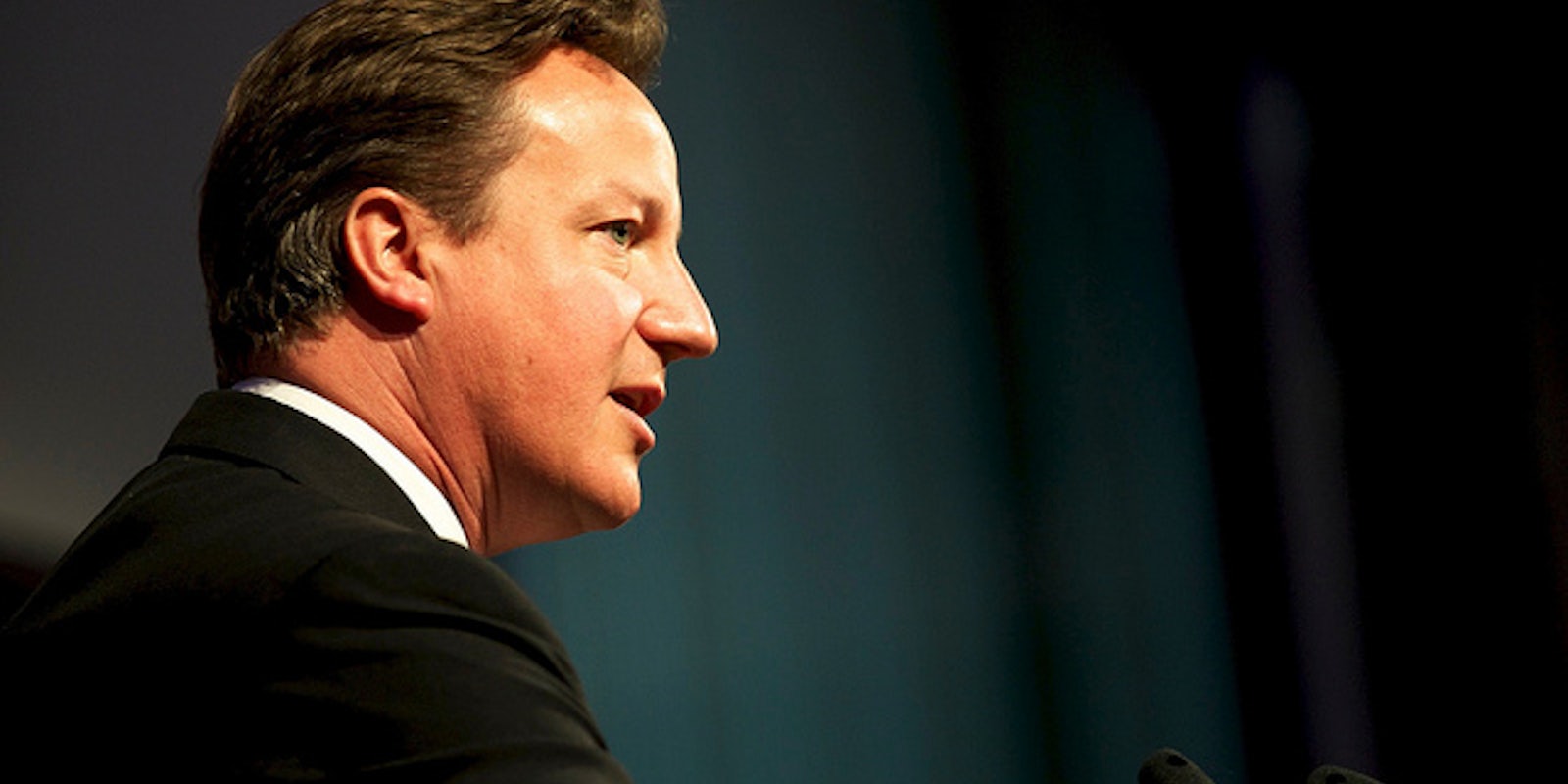British Prime Minister David Cameron announced Thursday that he may block social media communications in England as a way to bring peace to his riot-torn country.
At an emergency session of Parliament, Cameron said that information “can be used for good. But it can also be used for ill.”
“And when people are using social media for violence we need to stop them,” said Cameron in a transcript posted on the British Prime Minister’s website. “So we are working with the Police, the intelligence services and industry to look at whether it would be right to stop people communicating via these websites and services when we know they are plotting violence, disorder and criminality.”
From his language to Parliament, it is not clear whether Cameron is proposing a general block on social network traffic, or some kind of ban on specific users suspected of violent intent. And it’s far from clear how either form of ban would be implemented, let alone whether it would be effective—or legal.
The notion of blocking social media comes after reports that Research In Motion’s BlackBerry Messenger system was used by rioters to organize their crimes.
Meanwhile, other reports indicate that Twitter has been used to organize cleanup efforts and anti-riot campaigns. It’s even been used by English police to arrest three rioters in Southhampton, according to the BBC.
The masses took to Google+, Google’s nascent social network, to comment on Financial Times reporter Tim Bradshaw’s post on Cameron’s speech. Many people believe the prime minister’s plan amounted to little more than censorship.
“Blimey, whatever next? Stopping people from talking/telephoning/writing letters?” wrote Chris Redd, of London. “There’s a massive distinction between monitoring/intercepting communications for purposes of detection/prevention of crime and shutting down the channels completely for people so they simply can’t be used.”
“This is like blaming fire for arson. Like banning matches or cigarette lighters because they cause people to commit arson,” wrote Daniel Harder. “Or banning baseball bats because they cause people to beat others up.”
Daily Dot executive editor Owen Thomas made a similar comparison in a column on the riots yesterday, comparing social technologies to oxygen—an element without which we wouldn’t have fires, but we also wouldn’t have life.
More than 1,200 people have been arrested across England following the death of 29-year-old Mark Duggan in Tottenham a week ago, according to the Wall Street Journal. Over the last few days, the riots have spread to Birmingham, Manchester, Nottingham, Bristol and Leicester where judges “have presided over scores of cases” through the night, according to The Guardian.
Photo by DFID


